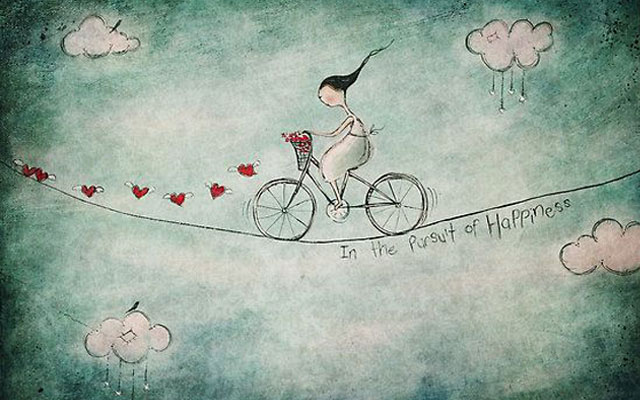
“Emotions impact health and behavior, and they should be managed to gain self-mastery.”
Avicenna (970-1037), the 11th century medical savant and philosopher foretold the imperative role of emotions on human psyche and behavior in his preeminent book, The Canon of Medicine.
Centuries later, James Gross, director of Stanford Psychophysiology Laboratory known with his emotion regulation model explains:
Emotional regulation refers to the process by which individuals influence which emotions they have, when they have them, and how they experience and express their feelings.
Human ability to control and regulate emotions using reason and willpower is a pivotal strength. Not only it distinguishes humans from primates but it also contours social behavior, renders self-stability, confidence and success in pursuing one’s goals in life.
Lisa Feldmann Barrett, in her revolutionary model of how emotions are made by us, challenges the conventional view which assumes that events in the outside world trigger our hard wired affective states :
Emotions that seem to happen to us are actually made by us. We are the architects of our own emotional experience.
Our brain is wired to make meaning of thought fluxes and fragments of information which trigger the firing of millions of neurons each second. It is driven by the need to know what to do next. In any event, brain constructs a meaning by making a viable prediction based on one’s flux of thought, past experience and beliefs. This prediction inculcates the affective experience associated with the event.
We feel what our brain believes. Next, we act on this feeling-believing.
Jaak Panskepp, neuroscientist and psychobiologist who coined the term “affective neuroscience” also affirms that we generate our emotions through neural activity :
“Affective experience is an emergent function of complex network-level neurodynamics, intimately connected to body and world.”
To trace the chain of cause underlying the predominant emotion, one is to dive within to identify the triggers in the body, in the psychic space and how they associate with the outside world. Barret explains how :
In pursuing this self-analysis, any readjustment in our perceptual prism will generate a new flux of thought and thereon change the habitual meaning that the brain attributes. This voluntary shift in interpretation alters the prediction of the brain, and renders a different facet of reality. As the prediction changes, the affect infused in the experience is remodulated and we experience a new self-being vis-à-vis the outside environment. Thus we can construct our affective state and regulate our emotions by reappraising the situation and engaging in self-reflective exercise.

She explains how we can turn down our sufferings :
If you can change the ingredients that your brain uses to produce emotions, you are teaching your brain how to predict differently tomorrow. Then you can transform your emotional life. We are architects of our own emotional experience. […]
The paradox is more control of emotions also means more responsibility. If you are not at the mercy of automatically triggered emotional circuits deep in your brain, then who is responsible when you behave badly ?
The actions and the experiences you make today become your brain’s predictions for tomorrow. This is emotional intelligence in action. You can turn down your emotional suffering by learning how to construct your experiences differently and transforming the predictions of your brain.

Gross also states that whatever meaning the individual constructs in a given situation, it is that meaning which gives rise to emotion. Yet, the “malleability” feature of emotion enables its regulation. He soldifies the modes of regulation :
Cognitive change
Involves reappraising a situation’s meaning in such a way that there is a change in the person’s emotional response to that situation.
For example, take a situation in which an acquaintance breezes by us in the hall and seems to ignore our smile and wave of greeting. For many, a natural response in such a situation is to feel hurt or angry at this perceived snub. In this case, cognitive change may take the form of thinking about the acquaintance as distracted, or perhaps preoccupied with his or her own problems. Such an interpretation of the situation—whether objectively correct or not—can profoundly affect the quality (which emotion) as well as the quantity or intensity (how much emotion).
Attentional deployment
“Distraction” involves a shift in attention either away from emotional aspects of the situation or away from the situation altogether. Distraction may also involve a change in internal focus, such as silencing the ruminative and recursive thoughts, finding a pleasant activity to boost morale, or even get out to take a few deep breaths can distance one away from negative affect.
Response Modulation
The pause time between stimulus and response restores the mental faculties bringing forth rational thinking and reasoning.
For example, a person can feel ashamed for having expressed anger toward a loved one. The remorse may motivate him to hold on next time he feels anger rising, and instead of acting on the spot he may consider to engage in an inner work to inhibit anger.
Impulsive acts triggered by sudden emotional pushes may cause one to deviate from his characteristic values and ethics. Pause allows time for zooming out and reevaluating the situation while enabling the recollection of willpower and reason. It gives chance to lift our reflexive habitual judgments and make room for thinking long-term. Better still, it may allow us to capture sight of what lies beyond the immediately visible scenario and gauge us to see the hidden benefit for our psychospiritual development.
It demands self-reflective ability to analyze and understand emotional experiences by their causes. This ability translates into self-knowledge and a better understanding of one’s relation to oneself and to the environment. The ultimate aim is cultivating awareness, stability and self-mastery.
He concludes :
At a basic level of self-reflection , those who are unable to perceive and appraise their own emotional states accurately may fail to recognize the origin of their troubles.
A further component of reflective regulation is the ability to understand emotions without exaggerating or minimizing their importance. As a result, emotionally intelligent individuals should be able to strike a healthy balance between pleasant distractions and coming to terms with their feelings.
Duygu Bruce







